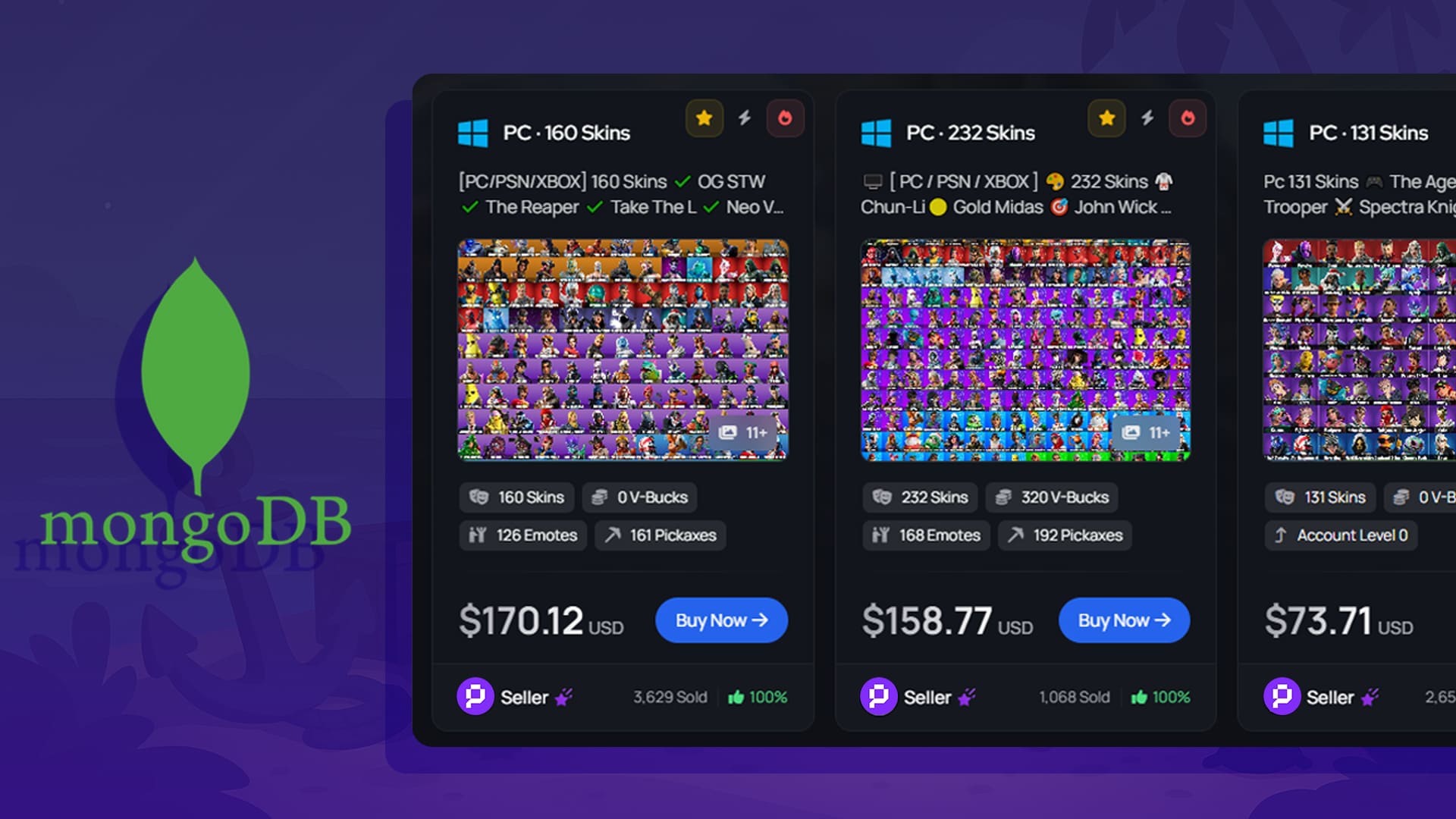A Marketplace Needs Flexibility — And SQL Wasn’t It
When we started building PlayerBay, we knew right away that our platform wasn’t going to look like a typical storefront. Sellers list all kinds of items — game accounts, gold, digital goods, rare collectibles — each with their own quirks. One-size-fits-all data structures just wouldn’t cut it.
SQL databases are great for predictable tables with fixed columns. But what happens when a World of Warcraft listing needs “Faction” and “Server,” and a Rust listing needs “Blueprint Level” and “Wipe Status”? Trying to model that in a traditional SQL schema means constant migrations, bloated tables, and messy joins. We needed something that let each category be flexible without sacrificing structure. So we chose MongoDB.

How NoSQL Lets Us Adapt to Any Game, Any Item
MongoDB is a document-based database — meaning we can store flexible objects that match exactly what a listing needs. Our categories each have assigned features (like Platform, Rarity, Region, etc.), and those map directly to the listing’s metadata.
Each listing type can have its own fields without needing a massive schema overhaul. For example:
- Gold listings might include delivery speed, region, or amount formatting
- Account listings might include skins, ranks, and login method
- Items listings might list supported game modes and preview images

This structure is powered by a flexible pair of schemas: Category and CategoryFeature. Features are assigned at the category level, and each listing fills out just the parts it needs — no more, no less. And because everything is nested and typed, it’s still safe and queryable.
Scalable, Fast, and Built for the Future
MongoDB also helps us move fast. We don’t need to run SQL migrations every time we add a new filter or data type. We can store relational references with ObjectIDs, but keep the core data shape fluid. That’s perfect for a growing marketplace where games and listing styles evolve constantly.
With Mongoose, we still get structure and validation — like requiring an email on users or enforcing certain fields in products. But we also get the flexibility to scale up features, support dynamic filters, and build rich UI experiences that are powered by the data itself.
And since MongoDB is built to scale horizontally, we’re confident that PlayerBay’s backend can grow with us — no matter how many listings, users, or games we support in the future.

